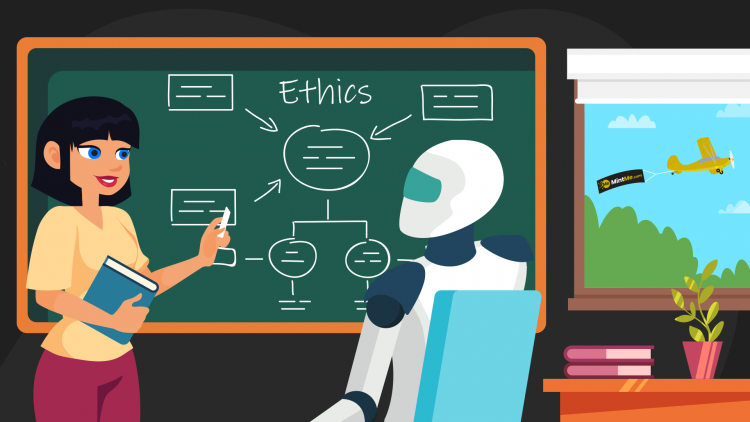Mintme News

As the world becomes increasingly reliant on technology, the integration of artificial intelligence (AI) and blockchain has become a hot topic. While these technologies offer immense opportunities for innovation, they also pose ethical challenges that must be addressed to ensure responsible development.
One of the key ethical concerns surrounding AI and blockchain is privacy. With the vast amounts of data being generated and stored, it is crucial to ensure that this information is protected from unauthorized access. This requires strong security measures and transparent data handling practices that prioritize user privacy.
In recent years, data breaches have become all too common, with millions of users' personal information being compromised. The Cambridge Analytica scandal, which saw data from millions of Facebook users being harvested without their knowledge or consent, is just one example of the potential consequences of lax data handling practices.
The integration of AI and blockchain could potentially offer solutions to these privacy concerns. Blockchain's decentralized nature means that the data is not stored in a central location, making it harder for hackers to gain unauthorized access. Additionally, AI algorithms can be used to identify potential security threats and take proactive steps to mitigate them.
Another ethical issue is bias. The objectivity of AI algorithms is limited by the quality of the data used to train them, and biased data will result in biased algorithms. This can lead to discrimination, particularly in areas such as hiring and lending, where AI is increasingly used to make decisions.
Developers must take steps to ensure that their algorithms are trained on diverse and representative data sets to minimize bias. This includes taking into account historical biases and prejudices that may be embedded in the data. Additionally, developers should consider involving diverse groups in the development process to ensure that the algorithm is designed with a range of perspectives in mind.
Transparency is also important. As AI and blockchain become more ubiquitous, it is essential that users understand how these technologies work and how their data is being used. This includes clear explanations of how algorithms make decisions and transparent reporting of any breaches or misuse of data.
Users should have control over their data and be able to easily access and delete it if they wish. This requires developers to prioritize user-centered design and ensure that the user's needs and desires are at the forefront of development.
Finally, there is the issue of accountability. As AI and blockchain become more autonomous, it becomes harder to attribute responsibility for any negative outcomes. Developers must take responsibility for the potential consequences of their technologies and ensure that they are held accountable if something goes wrong.
This includes developing clear ethical guidelines for the use of AI and blockchain, as well as establishing mechanisms for accountability and redress in the event of harm. Additionally, regulators and policymakers must play a role in ensuring that these technologies are developed and used in a way that is consistent with ethical principles.
In summary, the integration of AI and blockchain has the potential to revolutionize many aspects of our lives, but it is essential that we approach these technologies with a sense of responsibility and ethical awareness. By prioritizing privacy, minimizing bias, promoting transparency, and ensuring accountability, we can ensure that these technologies are developed and used in a way that benefits society as a whole.
It is also important to note that the ethical considerations surrounding AI and blockchain are not static. As these technologies continue to evolve, new ethical challenges are likely to arise. It is therefore crucial that developers, policymakers, and users remain vigilant and proactive in addressing these challenges to ensure that AI and blockchain are developed and used in a way that is beneficial for all.
Isaac Vitales